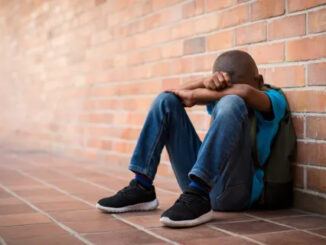
Disciplinary Reforms Help Students and Teachers Connect
As students head back to school, they’re still coping with the complicated effects of the pandemic and the transition from virtual schooling back to more structured classrooms. This has led to a spike in student misconduct, but it shouldn’t come as a surprise: Students have been expected to go back to how things were in the rush to “return to normal,” when circumstances are anything but. This approach has denied students the opportunity to process their emotions and experiences, which can explain the greater rate of “acting out” as kids navigate complicated feelings and emotions. While the U.S. Department of Education seeks to mitigate school discriminatory disciplinary action against students of color and students with disabilities as a result of the pandemic, student disciplinary practices must be critiqued and revised to avoid causing more harm as students and teachers navigate this difficult time. […]
